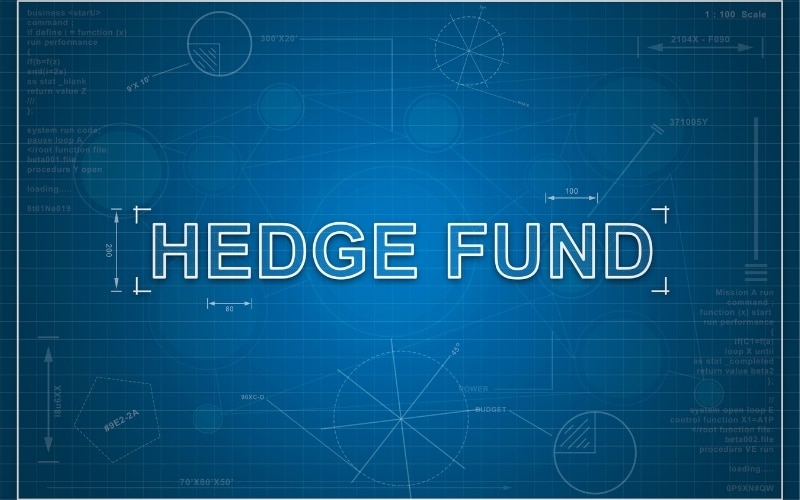
A hedge fund refers to an investment company that manages other people’s money. In most cases, hedge funds manage resources of institutions like pensions, companies, and high net-worth individuals. In this article, we will look at some of the common types of hedge funds and their examples.
How hedge funds make money
Hedge funds are major players in the financial market, especially in the developed world. According to BarclayHedge, a research company, these funds hold more than $3.3 trillion in assets under management. In the first quarter of 2020, the companies had about $2.8 billion.
Hedge funds make money in two primary ways. First, they take an administration fee that ranges between 1% to 5%. For example, a fund with $1 billion and a 2% fee will make a flat fee of $20 million regardless of their performance.
Second, they take an incentive fee that is often 20% of the total profit. Therefore, if the fund with $1 billion makes a return of 20%, it will make $40 million. As such, the fund will make a total income of $60 million when you add the two.
Equity long/short fund
A common type of hedge funds is those that invest in promising companies while shorting those they believe will underperform. According to BarclayHedge, these funds hold more than $170 billion of assets under management.
The idea behind them is easy. They have a team of analysts and investment managers who conduct research on companies and identify opportunities. If they see a company is undervalued and has room to grow, they buy the shares and wait for them to rise.
At the same time, they allocate some part of their portfolios to short companies they expect will drop.
In the past few years, long/short hedge funds have had mixed returns. While most of their long equities have done well, many of them have suffered short squeezes.
For example, a few years ago, Bill Ackman’s fund suffered a $1 billion loss when his short investment in Herbalife went south. Most recently, Melvin Capital suffered substantial losses when shares of GameStop rallied.
Some of the best-known long/short funds are Greenlight Capital and Lone Pine Capital Management.
Merger arbitrage hedge funds
The volume of mergers and acquisitions (M&A) around the world is rising. In recent months, several landmark deals have been announced. For example, S&P Global announced it would acquire IHS Markit for $44 billion, while Salesforce will acquire Slack for $27 billion. Another large deal that failed was MGM Resorts’ acquisition of the UK’s Entain Group. Other important deals are AMD’s acquisition of Xilinx and Nvidia’s acquisition of Arm Holdings.
There is a type of hedge funds that focus on these M&A deals. In fact, according to BarclayHedge, they have more than $80 billion of assets under management.
Their work is relatively simple. They anticipate potential deals and invest in them. Also, they jump into recently announced deals. For example, in the MGM and Entain case, many hedge funds first shorted MGM and bought Entain. After Entain’s refusal, they made money betting against the company. They also study anti-trust issues to identify situations where a deal will not be allowed.
Merger arbitrage hedge funds are also known as events-driven or special situation funds. Some of them are Poulson & Co and Cevian Capital.
Multistrategy hedge funds
A multistrategy hedge fund is one that does not limit itself to a particular approach. These funds combine multiple strategies to achieve uncorrelated returns. Some of them combine strategies like activism, long/short, merger arbitrage, special situations, fixed income, and even currencies. These hedge funds have more than $347 billion of assets.
Most of these hedge funds have teams of portfolio managers who are well aware of specific sub-industries. The goal is for them to identify investment opportunities in their specific sectors. For example, a fixed-income manager will try to find opportunities in that industry.
Multistrategy funds tend to perform well because they are not constrained to a specific approach. Some of the best-known funds in the industry are Ken Griffin’s Citadel, DE Shaw and Associates, and Millenium Partners.
Quantitative hedge funds
Technology has changed the investment industry in the past few decades. In fact, the number of traders in major exchanges like the New York Stock Exchange (NYSE) has continued to fall. Instead, most of the trading these days happens digitally.
Quantitative hedge funds are those relying on algorithms to open and close orders. Unlike the traditional funds that employed MBAs, these funds prefer to hire computer scientists and software engineers.
Indeed, in the past decades, some of the best-known quant hedge funds have outperformed their peers. That’s because computers and algorithms make decisions faster than humans. They can also identify multiple investing opportunities at once.
Some of the most prominent quantitative hedge funds are Renaissance Technologies, Two Sigma, AQR Capital, and AlphaSimplex Group.
Balanced hedge funds
Balanced hedge funds are those that invest in both stocks and income funds. Their goal is to take advantage of the better-performance of stocks and reliability of income funds like bonds.
A common approach in these funds is to invest 60% of the total fund in stocks and the rest 40% in bonds. According to BarclayHedge, these funds hold more than $475 billion of assets.
In the past few years, these funds have had mixed returns. While stocks have continued to do well, the bond market has been relatively weak because of the actions by the central banks that have slashed interest rates.
Some of the popular balanced hedge funds are Och-Ziff, Silver-Point Capital, Bridgewater Associates, and York Capital.
Summary
In this article, we have looked at the five popular types of hedge funds in the world. There are others like short-only, distressed securities, market neutral, and emerging market. While big hedge funds focus on major investors, it is also possible for an individual investor or trader to start and run a hedge fund. To do this, you need to start with your small account, grow it, and then look for investors to back it up.







